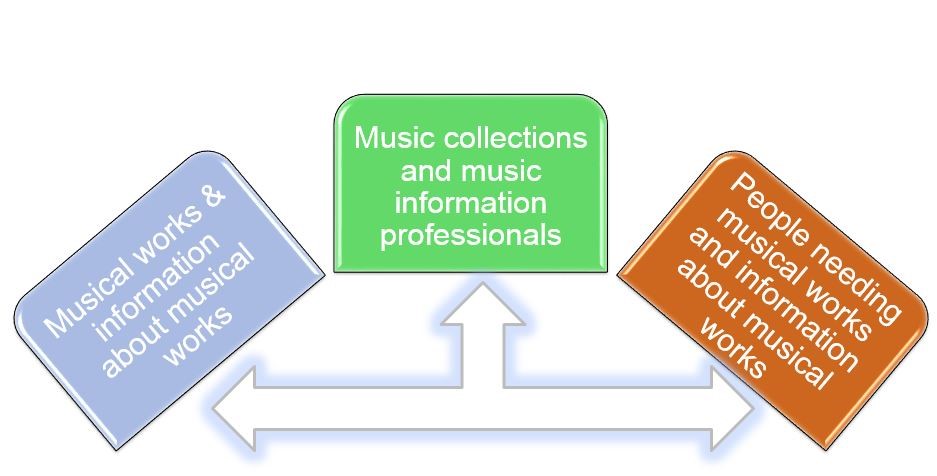The Oxford English Dictionary tells us that to advocate means to support, recommend, or speak in favour of a person or thing. This, I find, is a beautiful, simple and helpful definition. In the English speaking world in particular, the concept of advocacy currently tends to be interpreted as high level pro-active influencing of decision making.
IAML’s international Advocacy Committee is aiming to do a bit of both so I was very pleased to have the opportunity to present a short session on Advocacy for music services at IAML (UK&Irl)’s Academic Music Librarians’ Seminar. The idea was to explore how and what we already do relating to advocacy, and where we could develop new and simple ways of speaking up for music services in the context of academic libraries (in the UK and Ireland, but basically also anywhere in the world that has a comparable structure of music higher education sector).

First we need to think about what we are advocating for. On the one hand we have a fantastic treasure of musical works and information about musical works. On the other hand we have people needing access to musical works and information about musical works. In our current society there are many ways of getting from A to B. What we want to show the world, including the institutions we work in, is that the route from A to B via music collections and music information professionals remains essential and continues to provide good value for money and high standards of excellence.

So, at a local level, through what you do, are you making the most of your achievements through raising awareness? How and what should we measure to help us raise awareness and produce quantifiable data in the interest of policy making and fund raising? How can we best demonstrate the impact of music services and collections? Is there a role for music, performance and prominence in the context of advocacy for music services? Have you thought about your elevator pitch?
At the seminar, we had a good range of early and not-so early career professionals from universities and music conservatoires and they were asked, partly in the interest of being ready for the all-important elevator pitch, to think about how they would finish the following statement: “Music collections and music information professionals in academic libraries are essential because…”.
Our participants came up with a range of contributions, with the main emerging theme being specialist and expert music knowledge and of course the ability to read and understand the musical language. Most answers related to user services and reference enquiries, whilst others focussed on collection development and description and the knowledge of sources and collections. Some examples:
- researchers expect musical literacy to some extent; researchers feel more confident in the value of the library when staff have musical background; students know they can ask you questions relating to music; staff with music expertise save readers time and help students and researchers find what they need quickly;
- specialist support and collections lead to the development of future musicians and composers
- understand what the user wants when the user may not be able to articulate their own questions fully (e.g. specific edition, format, key etc.); there are many formats and many editions and we can’t assume readers’ expertise; music resources are complex and confusing and need experts to de-code
- musical knowledge enables and simplifies sensible decisions about acquisitions; a well-organised collection comes with knowledge and expertise; archives can be disorganised, awareness of resources and source materials not known to users
If you don’t quite agree with the “essential” part of the statement (the proportion of music specific enquiries and decision making will obviously vary depending on the context and the institution involved) please do feel free to tone down to “important” or even “helpful” and join the conversation by leaving comments on the blog.
We also briefly considered the following question: “If there was one thing you would do in relation to advocacy, what would it be?” Answers included:
- Learn more about what to advocate for
- Collect stories and enquiry numbers
- More promotion of the services, don’t assume people/senior management already know; library training for academics
- Raise awareness of the range of resources
- Keep track of and in touch with alumni
What will you do?
Anna Pensaert
IAML, Advocacy Committee Chair
Cambridge University Library, Head of Music Collections